Music
KS3 Curriculum
Learners are taught for one 60 minute lesson per week at Key Stage 3.The curriculum for music aims to ensure that all learners can perform, listen to, and appraise music spanning a range of historical periods, styles and musical genres. Learners must be able to understand and explore how music is created from its conception to production, concentrating on dynamics, tempo,texture and structure.
Learners have the opportunity to perform on a range of instruments during lessons, including hand bells, keyboard, percussion, piano, ukulele and voice.Further to this, singing is regular in all years and allows learners to build confidence in their ability to perform and compose.
Learners have the opportunity to use technology as a means to explore and discover new musical styles and approaches to composition. Using Garageband and Sibelius, students are able to create their own compositions using a variety of musical instruments. These compositions form a key part in assessing the pupil’s skills of creating and making, allowing them to improvise, compose and work simultaneously.
Key Stage 3 Music allows learners to work individually, in pairs, small groups and as a whole class on performance based projects. This gives the students an opportunity to perform in school showcases and performances throughout the year.
Assessment
Formal assessments take place at the end of each unit and these are based on the skills involved to demonstrate the Interrelated Dimensions of Music.Linking to GCSE music, all learners start to perform, listen to music, appraise music and compose music,
KS3 Curriculum
BTEC Rock School Music Level 2
This new BTEC qualification allows learners the opportunity to specialise in Performance through an exciting and practical course which is nationally recognised by colleges as a strong foundation for an A Level or BTEC equivalent in Music at college.
The course consists of modules worth 4 or 8 credits each, and must total no less than 20 credits.
Learners have the opportunity to explore the following modules:
- Live music performance
- Music Rehearsal Skills
- Organising a music event
Learner’s work will be underpinned by a developing knowledge of music theory to enable them to perform to the highest standard. Learners will receive a 1-1 music lesson, delivered by one of our specialist peripatetic teachers.
| Units | Live Music Performance | Music Rehearsal Skills | Organising a Music Event |
| Content | There will be opportunities for learners to develop their performance skills. This is worth 8 credits | There will be opportunities for learners to develop their technical skills through performance rehearsal. | There will be opportunities for learners to organise a variety of musical events throughout the course. |
| Assessment | Externally assessed | Internally assessed and externally moderated. | Internally assessed and externally moderated. |
| Credits | 8 | 8 | 8 |
GCSE Music
AQA Exam Board
The GCSE Music syllabus mark scheme applies to all formal and informal assessments throughout the two year course. To enhance their learning and consolidation of knowledge, learners are given regular homework tasks that include listening to and appraising music as well as regular practice on their chosen instrument for performance.
Learners will also be given regular individual verbal and written feedback on work with targets for improvement. Class teachers keep a record of all marks awarded and will use this information to provide mid- year and end of year school attainment grades.
There are 4 areas of study:
- Western Classical Tradition since 1910
- Popular Music
- Traditional Music
- Western Classical Traditional since 1910
The Grange School follow the AQA Specification for GCSE Music. This is divided into three components with their own assessment methods.
| Units | Understanding Music | Performing Music | Composing Music |
| Content | Listening and Contextual Understanding | Music Performance 1 solo 1 ensemble | Composition 1: To a brief Composition 2: Free |
| Assessment | Written exam paper (section A and B) 1 hour and 30 minutes | Internally assessed and externally moderated. | Internally assessed and externally moderated. |
| Contribution | 40% | 30% | 30% |



